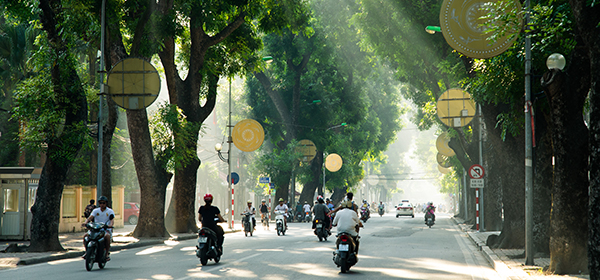
Retiring in Hanoi is an increasingly popular choice for international retirees. The city offers a unique blend of rich history, vibrant culture, and modern amenities, all set against the backdrop of stunning natural beauty. However, like any major life decision, retiring in Hanoi comes with its own set of rewards and challenges.
Cost of Living
One of the biggest draws for retirees in Hanoi is the low cost of living. Your money can go a long way here, with a comfortable lifestyle achievable on a modest budget. Rent for a one-bedroom apartment in the city center can be as low as $500 per month, while eating out at local restaurants can cost just a few dollars per meal. However, it’s worth noting that imported goods and luxury items can be expensive.
Climate
Hanoi experiences a tropical monsoon climate, with hot, wet summers and cool, dry winters. The city is particularly beautiful in the spring (February to April) and autumn (October to November), when temperatures are mild and the scenery is at its most picturesque.
Healthcare
Healthcare in Hanoi is generally of a high standard, with a number of international-standard hospitals and clinics available. These include the French-Vietnamese Hospital and the International SOS Clinic. However, it’s recommended that retirees have comprehensive health insurance, as medical costs can be high for non-residents.
Public Healthcare System
While Vietnam does have a public healthcare system, it’s primarily designed for locals. International retirees are generally advised to secure private health insurance, as this will provide access to a wider range of services and higher standards of care.
Residency Options for Retirees
Vietnam offers a number of visa options for retirees, including a one-year, renewable visa. However, the process can be complex and may require the assistance of a local agent or lawyer.
Parks and Recreational Activities
Hanoi is home to numerous parks and recreational areas, including the famous Hoan Kiem Lake and the Hanoi Botanical Garden. The city also offers a wide range of cultural activities, from traditional water puppet shows to modern art exhibitions.
Restaurants
Hanoi is a food lover’s paradise, with a plethora of restaurants serving up everything from traditional Vietnamese cuisine to international fare. Some popular spots include Quan An Ngon, a food court-style restaurant offering a variety of Vietnamese dishes, and The Hanoi Social Club, a trendy spot known for its vegetarian and vegan options.
Learning the Language
While English is widely spoken in Hanoi, learning Vietnamese can greatly enhance your retirement experience. The Vietnam National University offers language courses specifically designed for foreigners.
Local Culture
The locals in Hanoi are generally friendly and welcoming to foreigners. The city has a strong sense of community, with many neighborhoods hosting regular events and festivals.
Markets
Hanoi is famous for its bustling markets, where you can find everything from fresh produce to handmade crafts. The Dong Xuan Market, the city’s largest, is a must-visit.
Meeting People and Volunteering
There are numerous clubs and organizations in Hanoi where retirees can meet like-minded individuals. Volunteering is also popular, with organizations such as the Blue Dragon Children’s Foundation always in need of help.
Housing
Most retirees in Hanoi opt to rent apartments or houses, with a wide range of options available to suit different budgets. Popular neighborhoods include the Old Quarter, Tay Ho, and Ba Dinh.
Transportation
Hanoi has an extensive public transportation system, including buses, taxis, and the newly opened metro. Many retirees also choose to get around by bicycle or on foot, as the city is very walkable.


